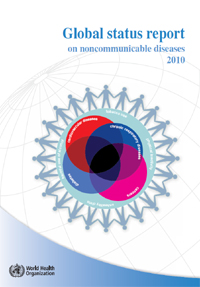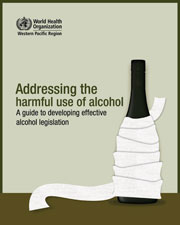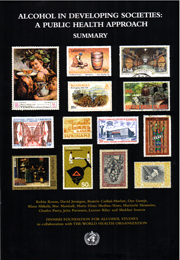
Millions of NCD deaths can be prevented
Noncommunicable diseases are the leading killer today and are on the increase, the first WHO Global status report on noncommunicable diseases (NCDs) launched In Moscow during the WHO Global Forum confirms. But millions of deaths can be prevented by stronger implementation of measures that exist today.
In 20081, 36.1 million people died from conditions such as heart disease, strokes, chronic lung diseases, cancers and diabetes. Nearly 80% of these deaths occurred in low- and middle-income countries. The Global Status Report on Noncommunicable Diseases 2010 is the first report on the worldwide epidemic of cardiovascular diseases, cancer, diabetes and chronic respiratory diseases, along with their risk factors and determinants.
"The rise of chronic noncommunicable diseases presents an enormous challenge," says WHO Director-General Dr Margaret Chan, who launched the report during the WHO Global Forum on addressing the challenge of noncommunicable diseases, being held today in Moscow, the Russian Federation.
Noncommunicable diseases kills tens of millions of people every year, and a large proportion of these deaths occurred before the age of 60, so during the most productive period of life. The magnitude of these diseases continues to rise, especially in low- and middle-income countries.
But millions of deaths can be prevented by stronger implementation of measures that exist today. These include policies that promote government-wide action against NCDs: stronger anti-tobacco controls and promoting healthier diets, physical activity, and reducing harmful use of alcohol; along with improving people's access to essential health care.
This report reviews the current status of noncommunicable diseases and provides a road map for reversing the epidemic by strengthening national and global monitoring and surveillance, scaling up the implementation of evidence-based measures to reduce risk factors like tobacco use, unhealthy diet, physical inactivity and harmful alcohol use, and improving access to cost-effective healthcare interventions to prevent complications, disabilities and premature death. This report, and subsequent editions, also provide a baseline for future monitoring of trends and for assessing the progress Member States are making to address the epidemic.
The Global Status Report on Noncommunicable Diseases was developed as part of the implementation of the 2008–2013 Action Plan for the Global Strategy for the Prevention and Control of Noncommunicable Diseases, which was endorsed by the World Health Assembly in 2008.

Read the full WHO press release
Access the Global Status Report on NCDs
Videoreports on YouTube:
WHO: Unite in the fight against NCDs
2011 UN NCDs summit: the European story
WHO: Global Noncommunicable Disease Network
Related articles
![]()
![]()
Developed with CustomPublish CMS by Nettinfo AS




